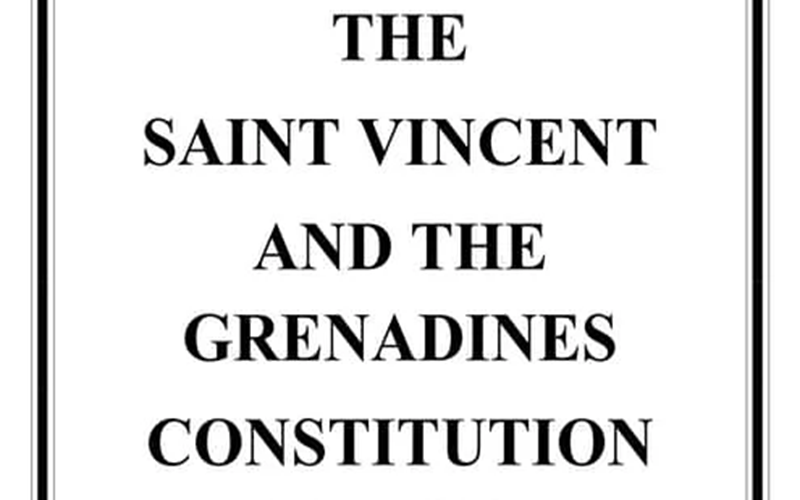Recent suggestions by members of the St. Vincent and the Grenadines Bar Association that a Vincentian who acquires Canadian citizenship may remain eligible for the House of Assembly are constitutionally flawed. A careful reading of our Constitution makes clear that eligibility and disqualification are distinct concepts, and the act of acquiring foreign citizenship can trigger disqualification.
Section 25(1)(a) establishes eligibility: a person must be a Commonwealth citizen of at least twenty-one years, resident in Saint Vincent, and capable of participating in parliamentary proceedings. This section permits a broad pool of candidates, including Commonwealth citizens. However, eligibility under Section 25 is expressly “subject to” Section 26, a phrase with significant legal meaning. In constitutional law, “subject to” means that the provisions of Section 25 operate only so long as they do not conflict with Section 26. In other words, Section 26 creates an overriding limitation: even if a candidate meets all the eligibility criteria in Section 25, they cannot be elected or appointed if disqualified under Section 26.
Section 26(1)(a) states:
“No person shall be qualified to be elected or appointed as a Representative or Senator if he is, by virtue of his own act, under any acknowledgment of allegiance, obedience or adherence to a foreign power or state.”
This provision is categorical. It disqualifies anyone who voluntarily assumes allegiance to a foreign sovereign. A Vincentian who applies for and takes Canadian citizenship has sworn a legally binding Oath of Allegiance to the King of Canada. By doing so, the individual has voluntarily assumed allegiance to a foreign sovereign, precisely the kind of act Section 26 was drafted to prohibit.
Some argue that because Canada is a fellow Commonwealth country, and shares the same monarch, allegiance to it should not trigger disqualification. Legally, this argument fails. Under the “divisible Crown” principle, King Charles is legally distinct in each realm: he is King of Saint Vincent and the Grenadines in one capacity, and King of Canada in another. Allegiance sworn to the King in Canada is therefore allegiance to a foreign state, even though the person is the same individual. Section 26(1)(a) is concerned with allegiance to a foreign sovereign, which is clearly present in this case.
It is also instructive to consider another relevant example. Camillo Gonsalves, a birth-citizen of the United States, renounced his American citizenship before he was appointed a Senator and later elected as a Representative, even though the Constitution did not expressly require him to do so. He acted because it was the morally right and politically prudent thing to do, to avoid any perception of divided loyalty. By contrast, Friday has not renounced his Canadian citizenship and has refused to do so. If he has, there is no record anywhere of this being done like there is in the case of Camillo. This refusal underscores the real and present question of allegiance under Section 26.
Additionally, the established precedent of Dr. Denzil Douglas in St. Kitts and Nevis illustrates the legal distinction between symbolic privileges and formal acts of allegiance. Douglas held a Dominica diplomatic passport but never applied for citizenship or took an oath of allegiance; the court ruled that this did not disqualify him. By contrast, the Canadian Oath of Citizenship is a formal, voluntary legal act, leaving no doubt that Section 26 applies.
Parliament is not a ceremonial forum. It is the seat of sovereign legislative authority. Section 26 ensures that those entrusted with lawmaking owe undivided loyalty to Saint Vincent and the Grenadines. Permitting a member who has sworn allegiance to another sovereign, even a friendly Commonwealth nation sharing the same constitutional King, would contravene this principle.
With all legal minds weighing in, one must remember that the law must ultimately be tested in court. Every interpretation that precedes judicial scrutiny remains academic. The act of swearing allegiance to Canada is legally significant, and the Constitution, as it stands, strongly favors disqualification.
The conclusion therefore is unmistakable: a Vincentian who voluntarily takes Canadian citizenship and swears the oath of allegiance is disqualified from serving as a Representative or Senator. Citizenship matters not in abstraction; it matters in law as a formal acknowledgment of allegiance. Ignoring this principle undermines the Constitution, the moral expectations of office, and the integrity of our parliamentary system.
More importantly, ordinary Vincentians must ask themselves a very simple question: is it possible for them to just hop on a flight to Canada and apply for a Canadian passport because they are members of the Commonwealth or would they need to undergo that country’s due legal process which includes the swearing of an oath to that country? Therein lies the answer…






